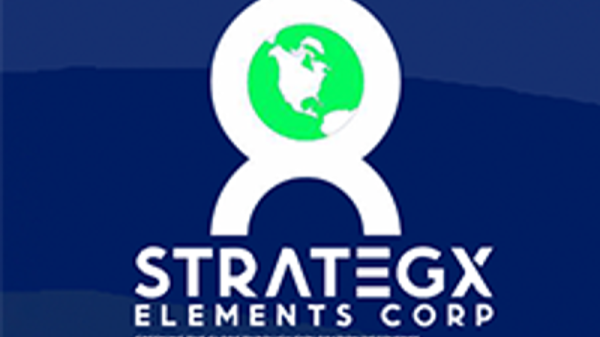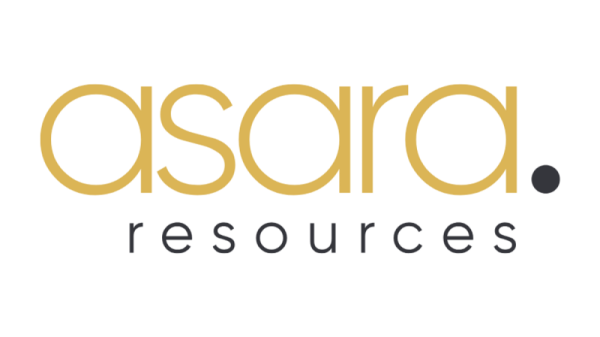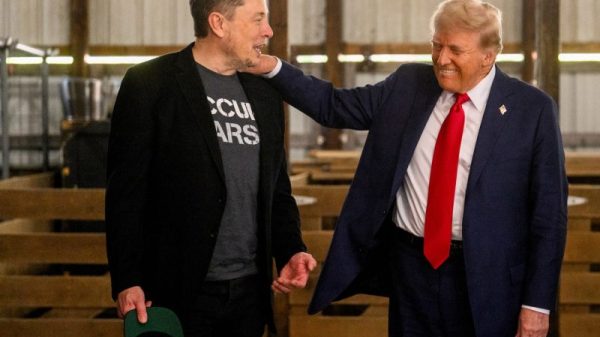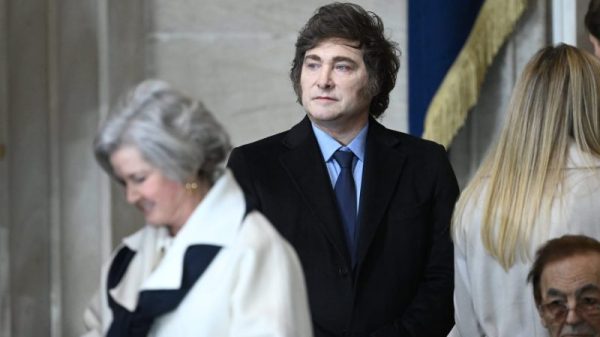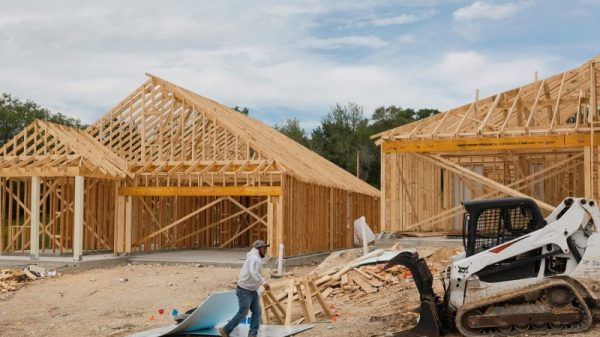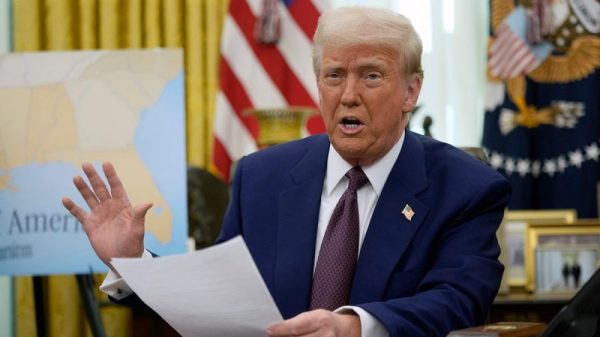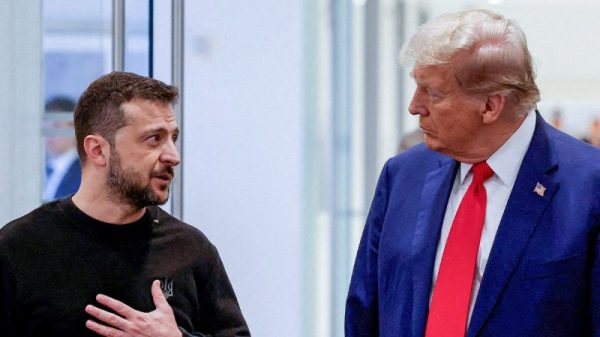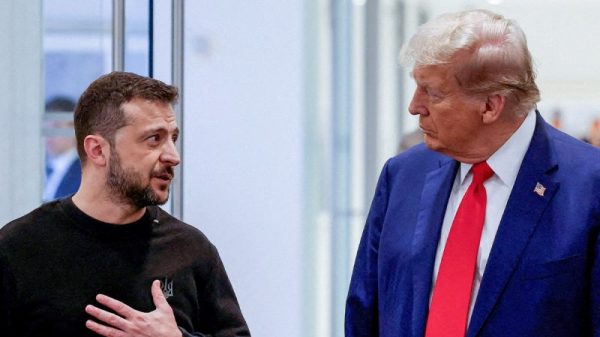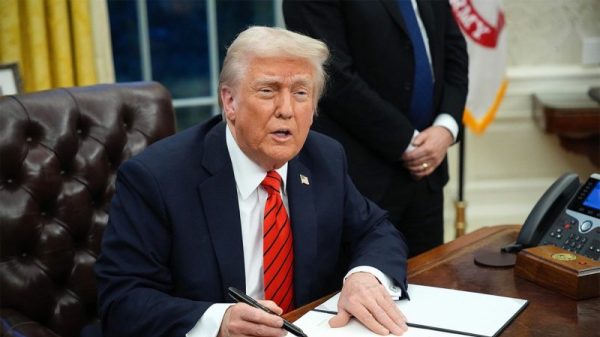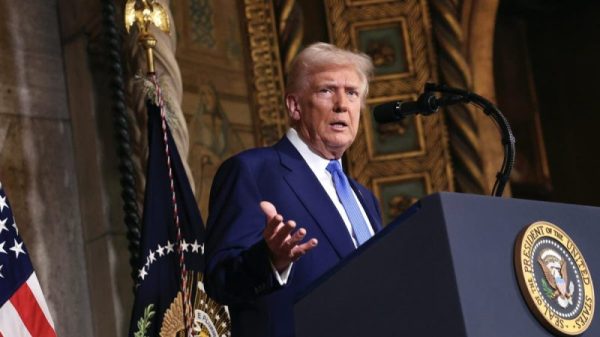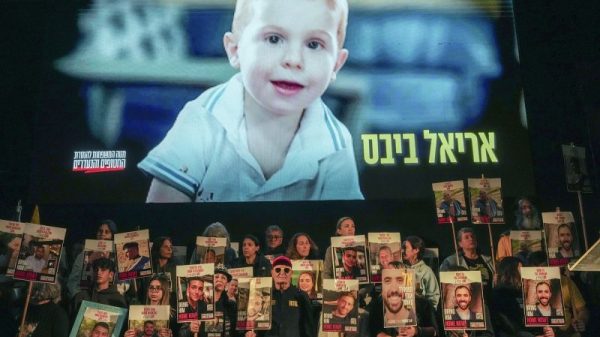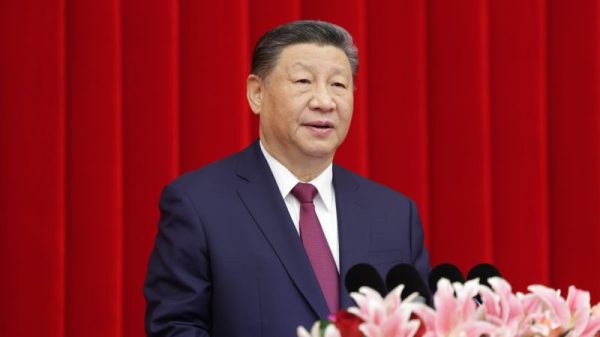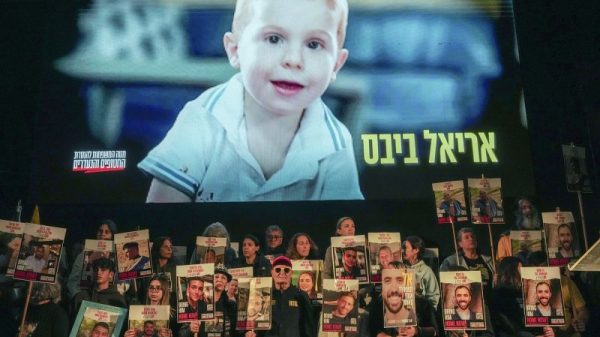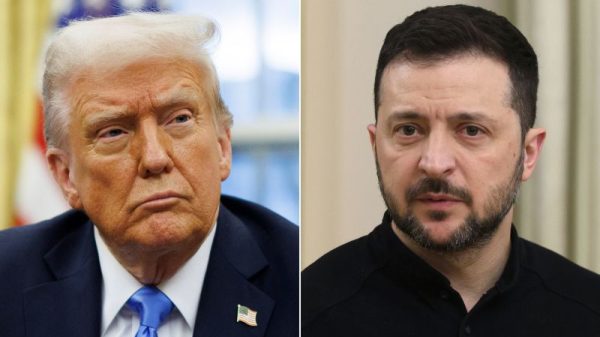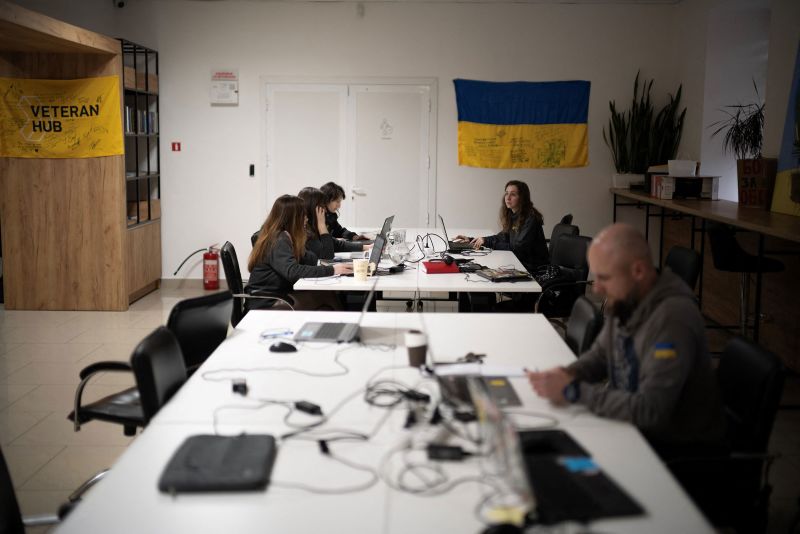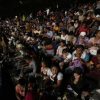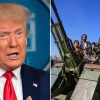Some 400 calls for help went unanswered when the helpline at Ukraine’s Veteran Hub went silent for a week after key funding from the United States was abruptly cut last month.
The Ukrainian NGO gets all sorts of calls. Some come from military families who have just found out their loved one was killed on the frontline. Some are from injured veterans who are struggling to cope with their return to civilian life or need help navigating the bureaucracy.
And some calls can save lives.
Kostyna and her colleagues had no choice but to shut the helpline down last month after receiving a stop-work order from the United States Department of State – a direct consequence of President Donald Trump’s decision to suspend nearly all US foreign aid.
The freeze is already causing hardship across Ukraine, with lifesaving projects suddenly put on hold.
Ukraine has been by far the biggest recipient of USAID funds in the past three years, ever since Russia launched its full-scale invasion of the country in February 2022.
According to the agency’s now defunct website, USAID has provided Ukraine with a total of $37.6 billion in humanitarian aid, development assistance and direct budget support since the full-scale war began.
Trump and his allies have said the agency, created by the US legislature as an independent body, is overtly partisan. Opposition lawmakers and former USAID administrators from both political parties have rejected that assertion and called for America’s foreign assistance programs to be protected.
After the European Union, the US is Ukraine’s biggest donor of humanitarian aid, providing more than a quarter of all the country receives. It is by far the biggest donor of military aid.
Ukrainian President Volodymyr Zelensky said his government was trying to find alternative sources of funding from within Ukraine and abroad. “These are areas that the government cannot provide for because the government doesn’t have enough money because the government is funding the army,” Kostyna said.
But the impact of the suspension goes way beyond the funding.
Kostyna said that many of the hub’s employees are either the main or sole breadwinners in their families, which means they cannot afford to be on unpaid leave. Most are highly qualified, with years of experience.
“So not only would we lose that person but, if the funding comes back, we’d have to rebuild, and we would lose six months training the next person. This is why continuity is so important,” she said.
‘Zero warning’
Vykhid has been a USAID partner since 2004. It serves roughly 5,000 clients at any given time, including drug users, newly diagnosed people and long-term patients.
The foundation relies on USAID for more than half of its funding, although there were times in the past when it was its only source. “We realized (then) that it is impossible to have only one donor for the organization to exist and we tried to have diversified sources of funding – thank God that we still have that,” Goriacheva said.
The foundation has had to shut down a key project focused on detection of new HIV cases since the freeze was announced, Goriacheva said. Ukraine has the highest prevalence of HIV in Europe and one of the highest outside Africa. The country experienced a rapidly spreading epidemic in the 1990s and, while rates have since dropped, early detection remains crucial.
“There are very few (people) doing this type of work. Doctors who worked with us for six years were receiving remuneration from us for any new patient they identified,” she said. “Now that the project has closed, some of them have stopped doing this activity completely.”
The foundation also provides other assistance to people living with HIV. It received a request last week to cover the cost of an MRI scan for a severely ill HIV patient in an intensive care unit.
The hospital turned to Vykhid, but because of the stop-work order Goriacheva had to turn the request down. Thankfully, she said, the hospital was able to find funding elsewhere.
The sudden nature of the funding freeze has made the situation particularly difficult. The order came without warning, effectively pulling the plug on hundreds of projects across Ukraine.
Kostyna said that anyone working in the non-profit sector knows that funding sources can dry up. “But it never crossed our mind that it could stop in a day. And it’s not about the money, it’s about the fact that we had zero warning, and we had no way to cover (the cuts) because we are not allowed to put money aside,” she said.
Goriacheva said that earlier this week, she was told by USAID subcontractors that some of the projects – those deemed essential – were being restored.
“Not in full. But those services that are vital are being restored,” she said, adding that she is now reaching out to her former project coordinators to figure out how to proceed.
‘On the verge of a disaster’
The rural community of Shevchenkove in the Mykolaiv region of southern Ukraine has been hit hard by the war. It was partially occupied for nine months after the full-scale invasion. The head of the local administration, Oleh Pylypenko, was detained by Russian forces.
Ukrainian forces liberated the area in November 2022, but the damage suffered during the occupation was extensive.
“Everything that was destroyed had to be rebuilt, and everything that was occupied had to be rebuilt,” said Pylypenko, who was released in a prisoner swap.
Health was a major issue for the community following the lengthy occupation, he said. Doctors and healthcare professionals funded by foreign aid money, including USAID, set up diagnostic clinics and have been distributing free medicines. All of the services that relied solely on USAID funding have now been suspended.
Pylypenko said he doubts that other international donors can match the funds previously provided by USAID. “I think (the situation) is on the verge of a disaster,” he said, adding that even if the programs are restarted after the initial 90-day freeze announced by Trump, it will take much longer to get them back up and running.
This delay will have a significant impact on the community, he said. One local project funded by USAID was focused on setting up emergency educational spaces. These are fully equipped classrooms in safe locations with access to shelters, where children whose schools were destroyed can attend in-person classes.
One was opened recently in the region, and another was supposed to open in March. Pylypenko said the children who were due to attend had seen their original schools destroyed during the occupation, only for another at which they were attending classes to be hit by a Russian drone last summer.
Pylypenko now hopes they can have the new space ready for September, but if Trump’s freeze is renewed, alternative funding will need to be found, “God willing.”
But what worries Pylypenko the most is the freeze impacting Ukraine’s access to the training programs provided by USAID. These tend to focus on local government, anti-corruption, efficiency and democracy-building, and they are key for Ukraine’s future development, as well as its hopes of eventually joining the European Union.
“These were good training programs, plus there was exchange of experiences with the best communities, and the level (of performance) rose significantly,” he said, likening the USAID programs to the proverb about teaching people to fish, rather than just sending them fish to eat.
Working for free
Kostyna first launched the Veteran Hub in 2016, after a firsthand experience with trauma. Her friend, 19-year-old Ustym Holodnyuk, was killed by a sniper at Kyiv’s Maidan, or Independence Square, during the 2014 protests. She struggled for a long time without support.
“It didn’t even (cross) my mind to reach out for help, to reach out to a psychologist. And now, fast forward 10 years, and the impact that we, among others, have managed to achieve is that there is a large change in how people perceive this, we see a rising number of veterans (who say) they trust psychologists,” she said.
Kostyna said that the consistency in the US foreign aid program meant that she and her colleagues were able to build something that was unheard of in Ukraine just a decade ago: a comprehensive veterans’ affairs (support?) service.
“We now have taxi drivers bringing people in when they’re in distress. So they would sit in a taxi, share their story, and the taxi driver would (make a detour) and bring them to us… they do this regularly,” she said.
Most of those working at the Veteran Hub are relatives of veterans, active service members, or people who have experienced trauma, she said. Like many in Ukraine, they are struggling to make ends meet, living paycheck to paycheck.
Yet when the stop-work order came in, staff at one of their two centers refused to leave.
“In the week of the freeze, when we didn’t have funding, our Vinnytsia hub remained open, even though we couldn’t pay our employees. They didn’t receive (a) salary, but they all showed up to work on Monday, wearing uniforms, and they continued working,” she said.
There was some good news that week. After three days of intense fundraising efforts, the Veteran Hub managed to secure enough money to keep the helpline open for three months and get 14 people back to work. A few days later it received assurances from local businesses and the Vinnytsia city council that they will provide funding until the Veteran Hub finds a long-term solution.
The fact that she didn’t have to shutter the hub was a lifesaver, Kostyna said.
“There are so many people who just turn up,” she said. “There was a veteran who lost his documents, and he was referred to us because he was literally homeless, and he was looking for shelter and he needed medicine, and we were able to assist him.”
If the hub’s doors were to close, people like him would find themselves with nowhere else to go.

